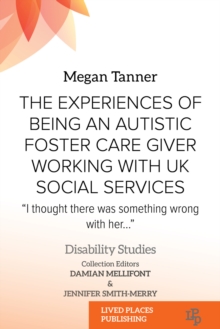
Special Educational Needs and Disability (SEND) in UK Schools : A Parent's Perspective PDF
by PhD (h.c.) Dr Carrie Grant MBE
Part of the Disability Studies series
Description
What is it like to be a child with SEND (Special Educational Needs and Disabilities) in schools today? What is it like to be a parent to four such children and fight for their rights?
Carrie Grant's children have - like all of us - complex identities. Of the four of them, two are autistic, three have AD(H)D, one is adopted, all are of dual heritage, and three hold various queer and trans non-binary identities. In this inspiring and at times heartbreaking book, the presenter, coach, and advocate shares stories from her family's experiences with education, schools and mental health services, as mum to children who are classified as SEND (Special Education Needs and Disabilities). These stories explore how school - when those delivering and managing education are poorly trained and ill equipped for a diverse population - can be at best ineffective, and, at worst, traumatising.
An inspiring call to action, this book is essential reading for:
- Teachers and aspiring teachers who want to know more about how to meet the needs of a diverse classroom.
- SENCOs (Special Education Needs Coordinators) and those training to work in SEND support.
- GPs, community health workers, and workers in Child and Adolescent Mental Health Services (CAMHS).
- Parents of children with SEND, who want to know how they can engage with formal education to advocate for their child's needs.
Information
-
Download - Immediately Available
- Format:PDF
- Publisher:Lived Places Publishing
- Publication Date:22/05/2022
- Category:
- ISBN:9781915271020
Information
-
Download - Immediately Available
- Format:PDF
- Publisher:Lived Places Publishing
- Publication Date:22/05/2022
- Category:
- ISBN:9781915271020










